Procedures for port state control 2017/Процедуры контроля государством порта 2017
В продаже есть Resolution A.1185(33) Procedures for Port State Control 2023
Издание на английском языке
The International Maritime Organization (IMO) has always acknowledged that effective implementation and enforcement of the global maritime standards contained in its conventions are primarily the responsibility of flag States.
Nevertheless, the Organization has simultaneously recognized that the exercise of the right to carry out port State control (PSC), as provided for in relevant international conventions, also makes an important contribution to ensuring that global maritime standards are being implemented consistently on ships of varying nationalities. PSC involves the inspection of foreign ships in national port areas to verify that the condition and operation of a ship and its equipment comply with the requirements of international regulations.
The IMO Sub-Committee on Implementation of IMO Instruments (III), recognizing the need tor a single comprehensive document to facilitate the work of maritime Administrations in general and PSC inspectors in particular, reviewed and amalgamated existing resolutions and documents on PSC.
This resulted in the adoption of resolution A.1119(30) by the IMO Assembly, on 30 November 2017, which contains, as an annex, the Procedures for port State control, 2017, and revokes resolutions A.1052(27). The Assembly requested the Maritime Safety Committee and the Marine Environment Protection Committee to keep the Procedures under review and to amend them as necessary.
The resolution provides basic guidance to port State control officers (PSCOs) on the conduct of PSC inspections, in order to promote consistency in the conduct of inspections worldwide, and to harmonize the criteria for deciding on deficiencies of a ship, its equipment and the crew, as well as the application of control procedures. In particular, the resolution A.1119(30) contains the Guidelines for port State control officers on the ISM Code (appendix 8), which provide guidance to PSCOs for the harmonized application of related technical or operational deficiencies found in relation to the ISM Code during a PSC inspection and the Guidelines for PSCOs on certification of seafarers, manning and hours of rest (appendix 11), which are intended to provide guidance for a harmonized approach of PSC inspections in compliance with SOLAS regulations V/14 (manning) and I/2 (seafarer certification) and chapter VIII (hours of rest) of the STCW Convention, as amended.
The Organization cooperates with PSC regimes within the framework of resolution А.682(17) on Regional co-operation in the control of ships and discharges. Furthermore, the United Nations General Assembly invited IMO to strengthen its functions with regard to PSC in relation to safety and pollution standards as well as maritime security regulations and, in collaboration with the International Labour Organization, labour standards, so as to promote the implementation of globally agreed minimum standards by all States (resolution 58/240).
Contents
Foreword
Resolution А.1119(30)
Chapter 1 - General
1.1. Purpose
1.2. Application
1.3. Introduction
1.4. Provision for port State control
1.5. Ships of non-Parties
1.6. Ships below convention size
1.7. Definitions
1.8. Professional profile of PSCOs
1.9. Qualification and training requirements of PSCJOs
Chapter 2 - Port State inspections
2.1. General
2.2. Initial inspections
2.3. General procedural guidelines for PSCOs
2.4. Clear grounds
2.5. More detailed inspections
Chapter 3 - Contravention and detention
3.1 Identification of a substandard ship
3.2 Submission of information concerning deficiencies
3.3 Port State action in response to alleged substandard ships
3.4 Responsibilities of port State to take remedial action
3.5 Guidance for the detention of ships
3.6 Suspension of inspection
3.7 Procedures for rectification of deficiencies and release
Chapter 4 - Reporting requirements
4.1 Definitions
4.2 Flag State reporting
4.3 Reporting of allegations under MARPOL
Chapter 5 - Review procedures
5.1 Report of comments
Appendices
Appendix 1 Code of good practice for port State control officers conducting inspections within the framework of the regional memoranda of understanding and agreement on port State control (MSC-MEPC.4/Circ.2)
Appendix 2 Guidelines for the detention of ships
Appendix 3 Guidelines for investigations and inspections carried out under Annex I of MARPOL
Appendix 4 Guidelines for investigations and inspections carried out under Annex II of MARPOL
Appendix 5 Guidelines for discharge requirements under Annexes I and II of MARPOL
Appendix 6 Guidelines for more detailed inspections of ship structural and equipment requirements
Appendix 7 Guidelines for control of operational requirements
Appendix 8 Guidelines for port State control officers on the ISM Code
Appendix 9 Guidelines for port State control related to LRIT
Appendix 10 Guidelines for port State control under the 1969 Tonnage Convention
Appendix 11 Guidelines for port State control officers on certification of seafarers, manning and hours of rest
Appendix 12 List of certificates and documents
Appendix 13 Report of inspection in accordance with IMO port State control procedures
Appendix 14 Report of deficiencies not fully rectified or only provisionally rectified
Appendix 15 Report of action taken to the notifying Authority
Appendix 16 Format for the report of contravention of MARPOL (article 6)
Appendix 17 Comments by flag State on detention report
Appendix 18 List of instruments relevant to port State control procedures
Appendix 19 Port State control regimes: comparative table (extracts from document III 5/5/1)
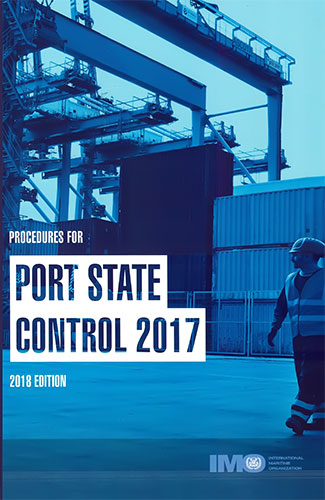
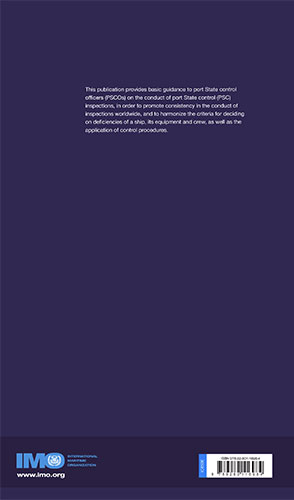



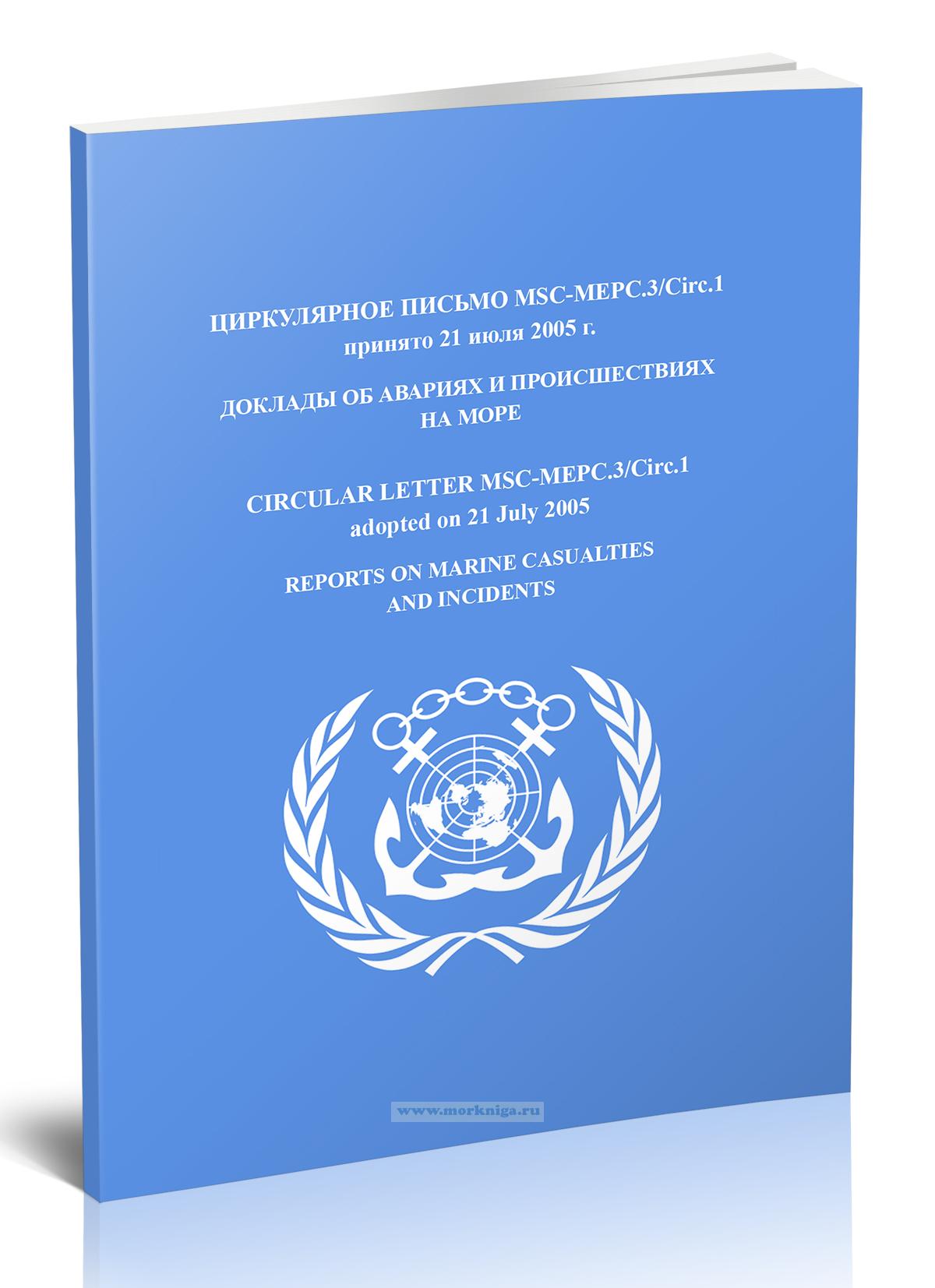 Циркулярное письмо MSC-МЕРС.3/Circ.1 Доклады об авариях и происшествиях на море
Циркулярное письмо MSC-МЕРС.3/Circ.1 Доклады об авариях и происшествиях на море 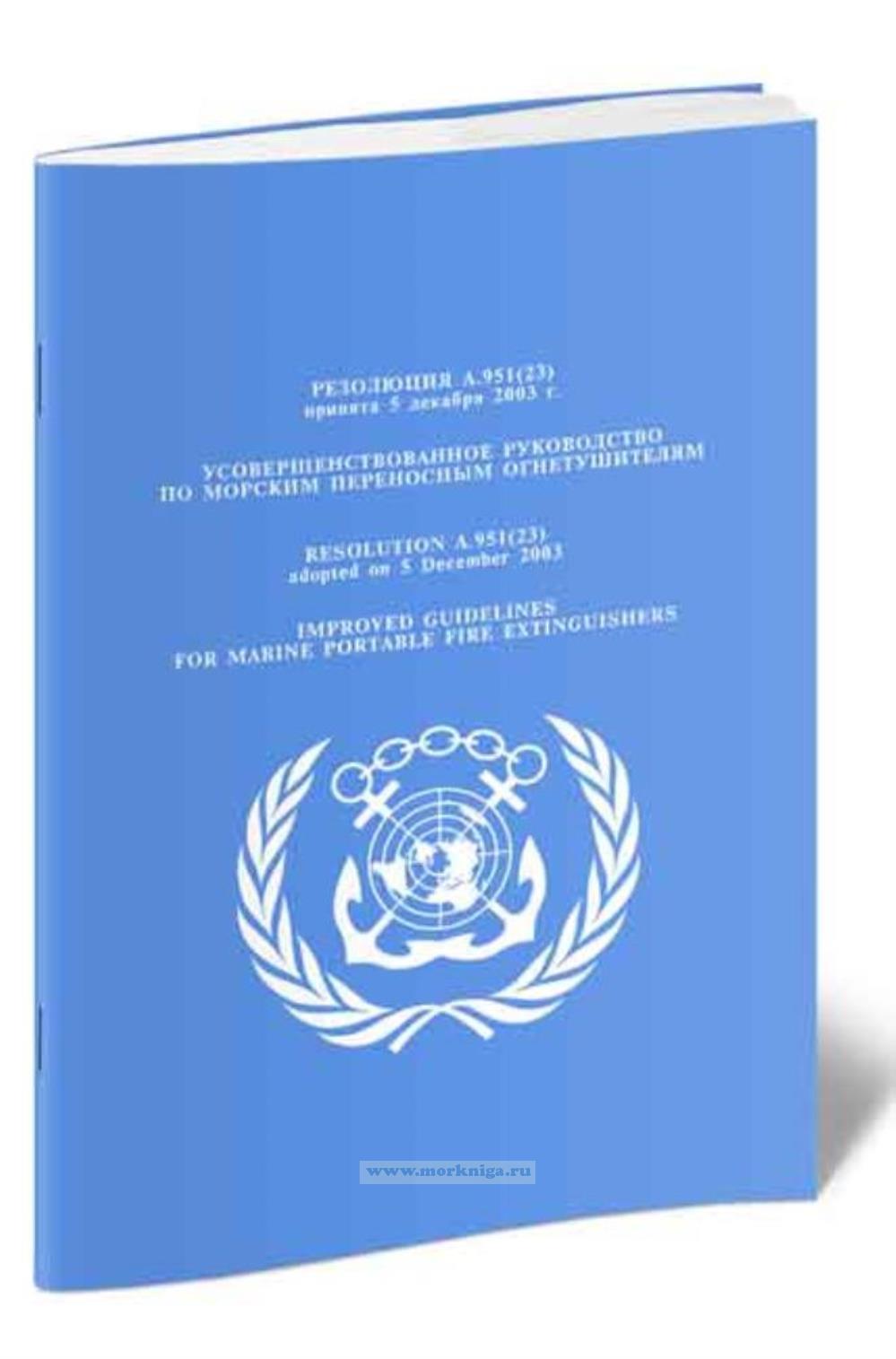 Резолюция A.951(23).Усовершенствованное руководство по морским переносным огнетушителям
Резолюция A.951(23).Усовершенствованное руководство по морским переносным огнетушителям 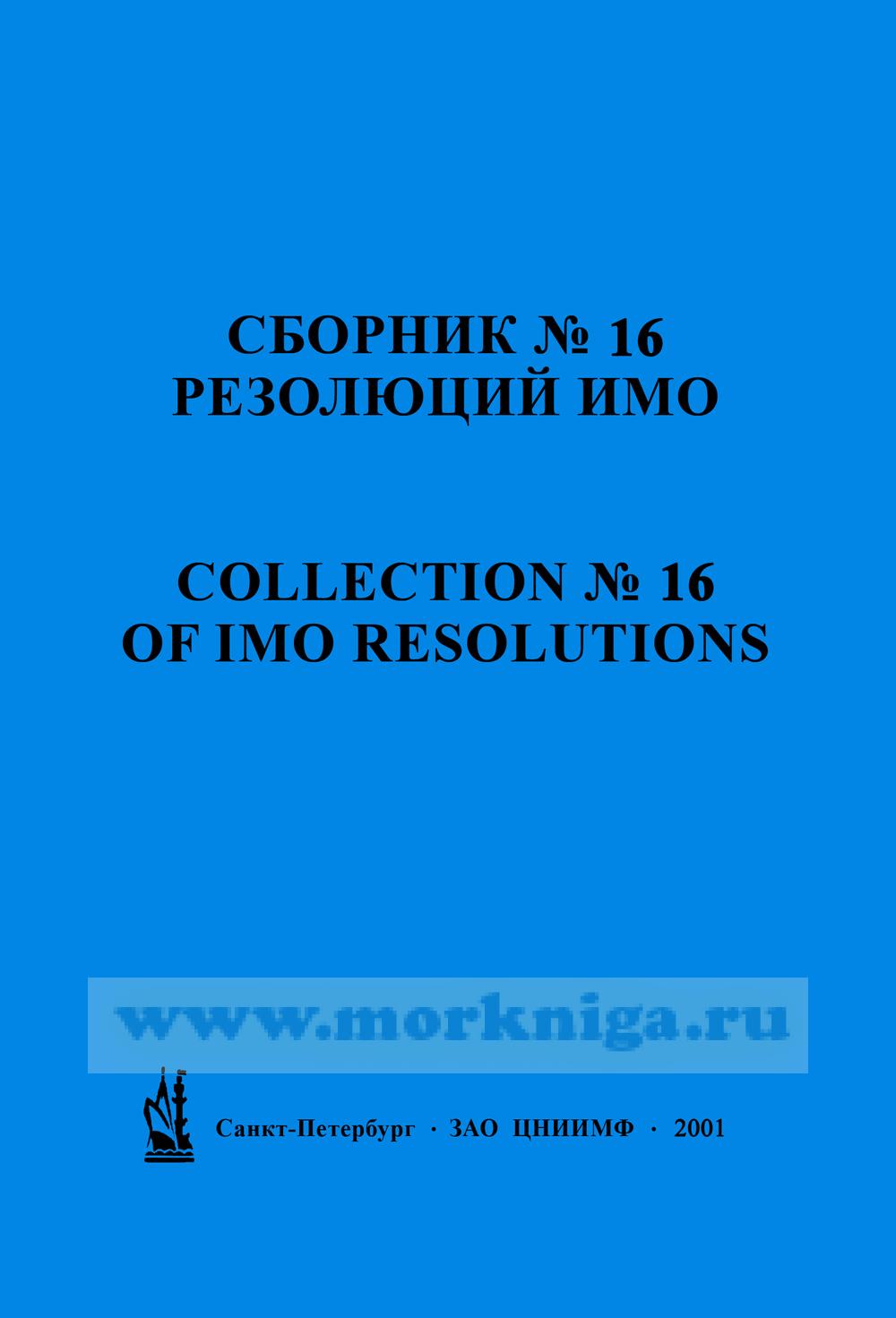 Сборник № 16 резолюций ИМО. Collection No.16 of IMO Resolutions
Сборник № 16 резолюций ИМО. Collection No.16 of IMO Resolutions